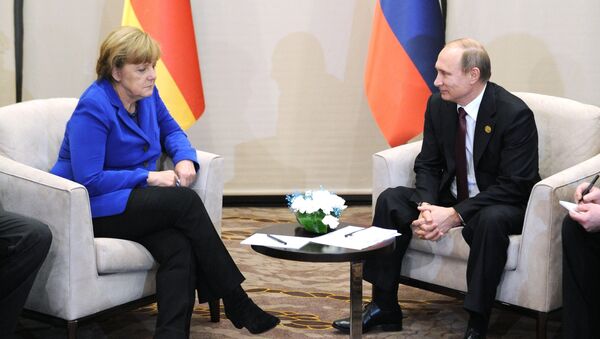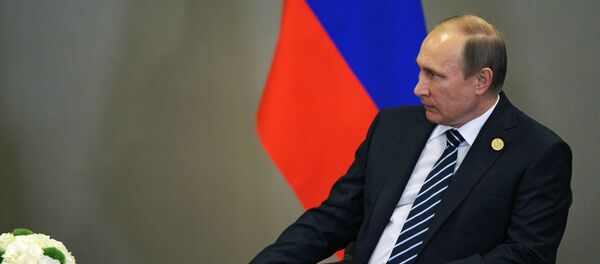"The conversation with Merkel was quite specific. The fight against terrorism, [the situation in] Ukraine were the issues that were specifically discussed," Peskov told reporters.
The two leaders also addressed the EU-Ukraine association deal, he added.
"Unfortunately, our contacts with the Europeans and the Ukrainians are not giving the desired results, and the consequences of this agreement entering into force remain negative. Attempts to discuss this problem have been unsuccessful. Moreover, a regression has been noted in terms of European partners not wishing to take Russia's concerns into account," Peskov said.
In June 2014, Ukraine and the European Union signed a landmark association agreement aimed at bringing Kiev and Brussels closer together, both economically and politically. It specifically seeks to create a free trade zone between Ukraine and the 28-nation bloc. Russia, Ukraine’s largest single trading partner, has repeatedly insisted on participating in EU-Ukraine, warning of its intention to scrap Ukraine’s preferential trade partner status by the end of 2015 unless its concerns were taken into account.
Moscow believes that a free trade area between Kiev and Brussels could result in the uncontrolled flow of European goods into the Russian market. Russia’s concerns over the implementation of the agreement caused the postponement of the free-trade zone's implementation until early 2016.
One of the topics discussed at the G20 Summit in southern Turkey between Russian President Vladimir Putin and Japanese Prime Minister Shinzo Abe was a peace agreement to WWII, Dmitry Peskov said.
"There was an unplanned meeting on the initiative of our Japanese colleagues with Prime Minister Abe. They spoke and touched upon the topic of a peace agreement, and a possible visit, and the topic of a visit that will be discussed further was discussed. Perhaps the Japanese prime minister may visit one of the Russian regions before that, and this topic will also be discussed," Peskov told journalists.



